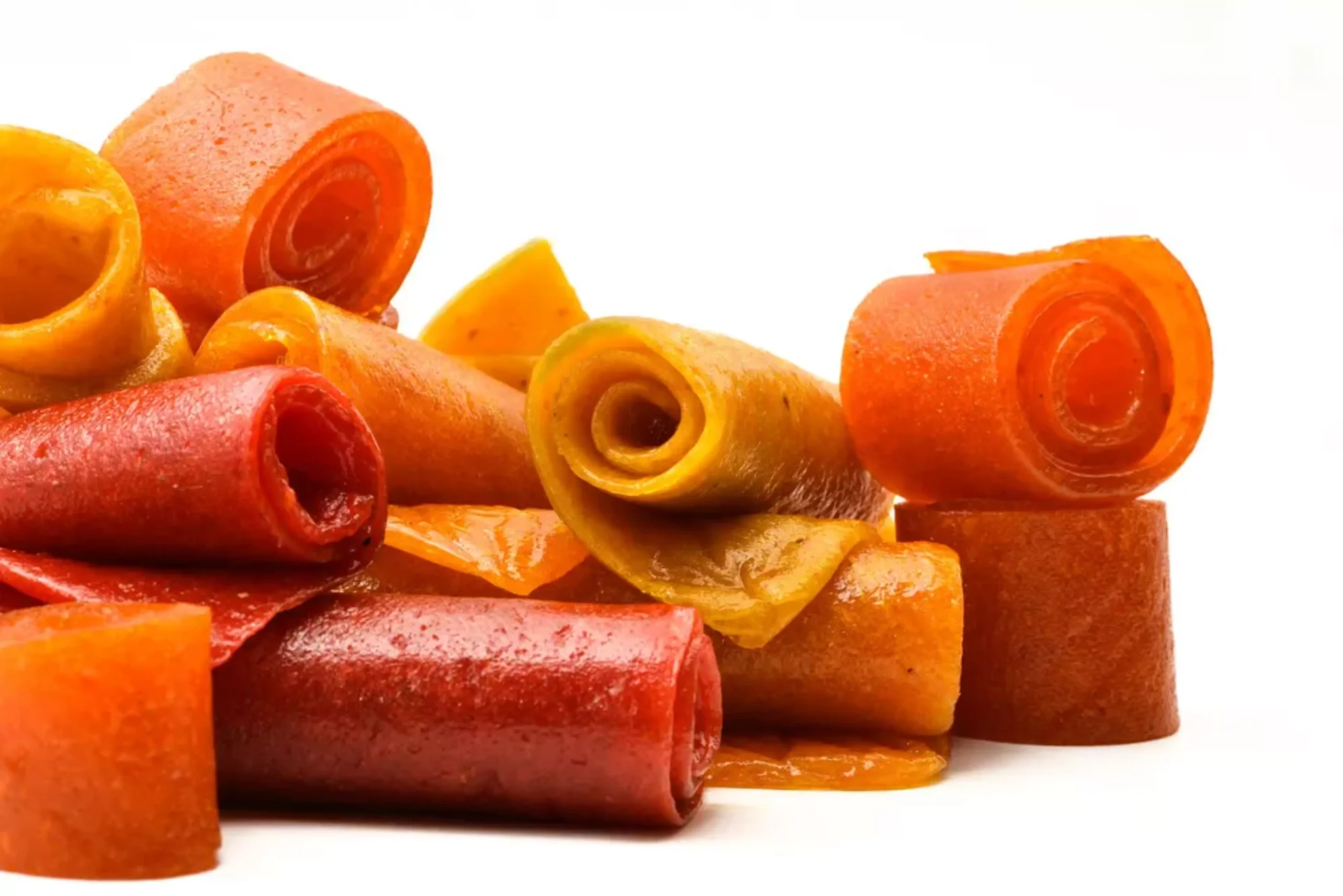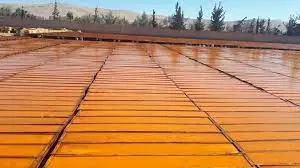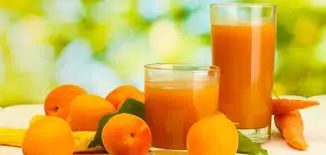Table of Contents
Qamar el-Din:
Qamar al-Din means the natural extract of ripe apricot fruits after removing the seeds and fibers from them and exposing them to heat and losing the bulk of their water and making them in rolls, NanoPro, provides consulting services to industrial food companies that produce at different levels – glucose can be added during manufacture and regular sugar and during manufacture, the product can be subjected to sulfur dioxide fumigation.
The Qamar al-Din industry is an old industry and it still depends on handicraft and has moved to modern methods of manufacturing it from preparation and drying processes and showing the final product in different non-traditional shapes and different flavors.

The stages of the Qamar El-Din industry
1-Fruit collection: after ripening, the fruits are collected manually and placed in boxes with smooth surfaces and are not pressed so as not to be crushed and spoiled.
2- Sorting: In the factory, the affected, damaged and immature fruits are excluded and the stems of the fruits are removed
3- Soaking and washing: the fruits are soaked for a short period of time and then washed by water sprays under pressure to remove dust and dirt stuck with the fruits.
4- Sulfur: the fruits are treated with sulfur dioxide gas to achieve the following objectives:
Preserve the natural color of the fruits.
Preventing or reducing vitamin C losses.
Extending the storage period of Qamar al-Din and delaying its blackening.
Repel insects during storage.
The sulfurization process can be done after squeezing the fruits, as the sodium metabiosulfite compound is added at a rate of (3) g per kilogram of juice, provided that it is mixed with the fruits homogeneously.
5- Squeezing: The double juicer made of stainless steel is used in the squeezing process, as the first works to separate the seeds and coarse fibers, then the second juicer with a fine filter separates the small fibers and receives the resulting juice in stainless steel basins or wooden barrels. Cement is not preferred. Because it reacts with juice, which leads to a reduction in acidity and the formation of calcium sulfate, which lowers the quality of production.
6- Adding sugar: about (7) % of normal sugar or glucose is added to the resulting juice. The advantage of glucose is that it gives the product the required sweetness and Qamar al-Din gains the required flexibility and luster in the product.
7- Drying: Prepare wooden boards, which are 200 cm in length, 30 cm in width and 1.2 cm in height, by cleaning them well and then wiping with a layer of olive oil to prevent juice from sticking to them. Until the upper edge of the edges, the plates are left for about (36) hours or more until the final thickness of the product is about (1.8) mm and the moisture percentage in the final product reaches (16-18%), then Qamar Al-Din is ready to be collected.
Solar drying takes place here in the open air, and the drying place is surrounded by soft metal mesh to allow air to enter the drying place. The upper surface is covered with glass or polyethylene foil to protect the product from dust and insects.
8- Gathering Qamar al-Din slices: After the drying process is completed, Qamar al-Din is gently collected from the plates or trays and the unwanted excess that has been affected by the drying process is cut off and then coated with a little olive oil as the amount of oil in Qamar al-Din does not exceed 2% and then folded in rolls on according to the required weight.
9- Packaging: The chips are wrapped with cellophane or transparent polyethylene paper, and the label on which the required data is written is affixed according to its own standard specifications.

Moving The Qamar El-Din industry from traditional methods to automated methods:
The Qamar El-Din industry has undergone a significant transformation, transitioning from traditional methods to the efficiency of automated processes. This shift is characterized by several key advancements:
- Enhanced Efficiency: The move to automated methods has significantly increased production efficiency, reducing the time and effort required for various manufacturing processes.
- Streamlined Production: Automated systems now handle tasks that were historically manual, leading to a streamlined and more consistent production flow.
- Improved Precision: Automation has allowed for precise measurement of ingredients and accurate blending, ensuring a higher quality and more standardized end product.
- Increased Scalability: The integration of automated methods has enhanced the industry’s scalability, enabling manufacturers to meet growing demands seamlessly.
- Quality Assurance: The use of automated technology facilitates better monitoring and control of production parameters, ensuring the maintenance of product quality and consistency.
- Preservation of Tradition: While embracing automation, the Qamar El-Din industry has maintained the traditional essence of its products, striking a balance between heritage and modernization.
- Innovation Commitment: This shift represents a commitment to innovation, sustainability, and adapting to the evolving needs of consumers in the Qamar El-Din market. Overall, the move to automated methods has propelled the industry forward, aligning it with contemporary production standards and market demands.
With Pronano, you can always introduce the latest and strangest food industries and achieve the greatest profits in your business
Follow us to see more like:
Making yogurt from the NanoPro, we provide consultancy services for industrial food businesses that produce different scales and varieties of yogurt.

